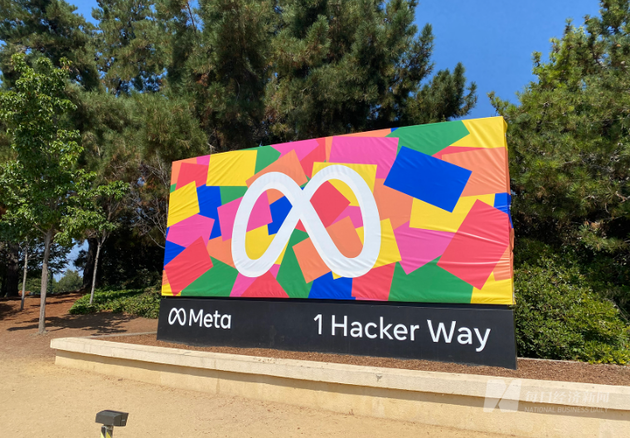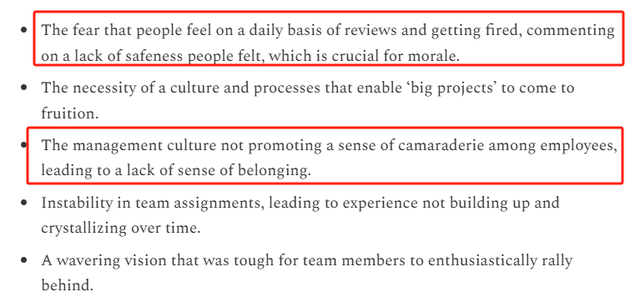In a striking turn of events, Meta, the tech giant known for its aggressive talent acquisition strategy with lucrative offers, has recently been exposed as a hotbed of fear culture.
This revelation paints a stark contrast between Meta's external image as a high-paying employer and its challenging internal work environment.

File photo/Zheng Yuhang (NBD)
"competitive pressure among colleagues has markedly increased"
On July 10th, Tijmen Blankevoort, a former Meta AI researcher, published a long-form article detailing the severe cultural issues within Meta. He stated that employees were constantly living in fear of performance evaluations and layoffs, making them feel insecure and lowering team morale. This caused a huge commotion within Meta and many current and former employees expressed that his words mirrored their true feelings.
"Compared to a few years ago, the work atmosphere at Meta has significantly changed," a current Meta employee, who wished to remain anonymous, told National Business Daily (NBD). "Especially in the last two years, competitive pressure among colleagues has markedly increased because the work pace is incredibly fast, individual error tolerance is very low, and the turnover rate is high."
The cutthroat environment has made Meta infamous for its "involution". Many entering Meta have an attitude of ‘taking a shot at pushing themselves’ and the current employees are highly driven to work hard. On the anonymous platform Blind, an Amazon employee commented that Meta is now only suitable for young people without families who can focus solely on making money.
Blankevoort attributed the fear culture to Meta's performance evaluation system and the "up or out" policy. He said many employees were driven by fear of being fired rather than genuine passion for the mission. This fear is not unfounded. In February, Meta announced performance-based layoffs, planning to cut 3,600 jobs to dismiss underperforming employees and bring in fresh talent to enhance its competitiveness in the AI field. This has led to strong dissatisfaction among employees. One employee on Blind called Meta the "most cold-blood" tech company.
Speaking about Meta's internal elimination mechanism to NBD, the above-mentioned employee noted that while staff optimization has always occurred, past practices were more discreet. Now, departures are directly linked to performance and the process is more transparent. "Everyone knows who's been laid off," the employee said.
The internal elimination mechanism has also damaged team collaboration and increased internal divisions. For example, the generative AI team and the Reality Labs AI team had poor cooperation. The generative AI team was too busy with deadlines to respond to collaboration suggestions, which eventually led to problems in Llama 4 and underwhelming performance of Ray-Ban glasses.
On July 14th, Blankevoort clarified his initial intention was to promote positive changes within the company through internal communication, not to criticize it before leaving. He said Meta's leadership agreed with his views and were aware of the problems and working on solutions.

AI is reshaping talent landscape in Silicon Valley
While Meta's internal situation is tense, externally it is aggressively acquiring talent. In just one month, Meta acquired Scale AI for $14.3 billion, poached senior AI talent from competitors like OpenAI and Apple, and established a new super AI laboratory.
This is not unique to Meta but a reflection of the current situation in Silicon Valley. On one hand, the prosperity of the AI field has increased talent compensation. Senior AI researchers now earn $3 million to $7 million annually, with top scientists making over $10 million. In contrast, senior software engineers without AI experience usually earn 180,000 to 220,000. On the other hand, AI is changing and replacing traditional roles. Many tech giants have carried out layoffs of varying scales this year.
According to Andrew Jassy, Amazon's CEO, the introduction of generative AI will reduce the need for employees to perform certain tasks. Kevin Scott, Microsoft's CTO, predicted that by 2030, 95% of code will be generated by AI. This has made many engineers feel unprecedented pressure. New York Federal Reserve data shows that the unemployment rate for computer science and computer engineering bachelor's graduates is higher than the U.S. national average.
However, Jensen Huang, NVIDIA's CEO, believe that AI will not completely replace humans in the workplace. Google's CEO Sundar Pichai thinks AI can help engineers focus on high-value projects.
The above-mentioned Meta employee said to NBD that AI's rapid development poses some threats to their career, but it cannot fully replace humans.
Tom Zhang, a veteran HR expert at silicon valley, pointed out to NBD that the market now demands hybrid professionals. If students study computer science alongside other disciplines like biology, physics or finance, they will be more adaptable in the job market. When hard skills are comparable, soft skills like communication become crucial for competitiveness. AI can narrow the gap in hard skills but cannot provide the emotional value that humans can.


 川公网安备 51019002001991号
川公网安备 51019002001991号





